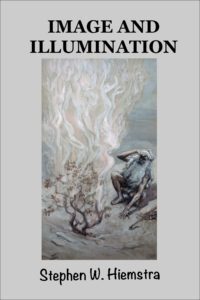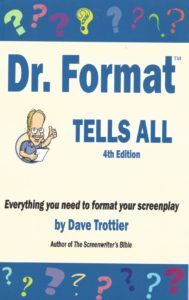Stephen W. Hiemstra's Blog, page 97
December 14, 2021
Ritchie Peers into the Heart of Darkness
 Mark Andrew Richie [1]. 2000. Spirit of the Rainforest: A Yanomanö Shaman’s Story. Chicago: Island Lake Press.
Mark Andrew Richie [1]. 2000. Spirit of the Rainforest: A Yanomanö Shaman’s Story. Chicago: Island Lake Press.
Review by Stephen W. Hiemstra
When I was elementary school, the curriculum emphasized repetition. If one paid attention and got it the first time, then boredom was the big challenge. At first, I spent the extra time acting out in class, but I later learned to keep a pile of library books in my desk and simply read during repetitious lessons. To keep the pilot light running in seminary, I read books from the recommended reading lists or recommended by trusted friends in Christ. Mark Richie’s Spirit of the Rainforest was one such book.
Literary Views of PrehistoryUnderstanding why this book is interesting requires a bit of background. In the early modern era, humanists questioned the divinity of Christ and especially the doctrine of the atonement. The atonement suggested that Christ died for our sins (1 Corinthians 15:3-6) and it implied that humans were inherently sinful (Genesis 3:6). By contrast, the humanists believed that humanity was basically good (and was not in need of Christ’s atonement or absolute moral standards) and they sought to build a utopia without God. In this context, the idea of a noble savage arose—primitive human beings untainted by civilization who were inherently good, not evil .
Yanomanö ShamanEnter Jungleman, a Shaman [3] living among the Yanomanö people of the Amazon rainforests of Columbia who was untouched by the corrupted influence of civilization. Spirit of the Rainforest is the narrative of his life told from his perspective (8). Richie writes in his introduction:
The Yanomamö are one of the world’s most mysterious peoples. Small, rarely over five feet tall, they have the speed, strength, and agility of a jungle cat. Their woman can tote their own weight up and down a jungle trail that would challenge me even if I were empty handed. Their men can call, track, and shoot anything that breathes in a jungle that is hostile enough to kill anyone but a trained survivalist (7).
The Spirit WorldAs a young warrior, Jungleman invited demons from the spirit world into his heart and mind. These demons offer him knowledge of far off events and strength in defeating his enemies. Jungleman knows these demons by animal names, such as Jaguar Spirit, Monkey Spirit, and so on. For example, Ritchie writes about Jaguar Spirit, the dominant, warrior or hunting spirit:
“Don’t go in here.” [Referring to a Christian village] Jaguar Spirit told me. “There’s too much danger here. We are afraid.” It was the first time I had ever heard fear coming from Jaguar Spirit, and it made me feel poor inside. My hands began to flutter and I held my bow tight to make them stop. (97)
But these spirits cannot be trusted and will abandon and turn on a Shaman when he shows weakness (like not following their advice to kill someone—especially children in a competing village) or for growing old.
Violence and WomenMuch of the violence among Yanomanö people historically arose in fights over women. The Yanomanö traditionally practiced polygamy and raided other villages to procure young women. Such raids were not easily forgotten because people would be killed and families broken up. Consequently, longstanding blood vendettas existed among neighboring villages.
Jungleman eventually comes to know Christ. His spirits abandoned him. In turn, he abandoned his warrior ways and becomes an advocate for the right of Yanomanö women to marry men of their own choosing.
Noble Savage?Those who want to believe the noble savage myth (or to disbelieve the existence of the spiritual world) will be disappointed with Ritchie’s Spirit of the Rainforest. Critics question Ritchie’s claim that he simply wrote down what he was told (8). I was not disappointed and found his accounts credible, in part, because his accounts of Yanomanö life are consistent with accounts of other native cultures. For example, the purpose of head-hunting in pre-modern Taiwan was:
To gain a head, as noted earlier, was to qualify a young man to gain the young woman he wished to marry. Revenge for the death of a loved one was also the occasion to take an enemy head .
There is also striking consistency in the influence of a Monkey Spirit (a spirit of lust acted out indiscriminately) in jungle culture and our own.
AssessmentRitchie’s Spirit of the Rainforest is a page turner and a great book to take along to the beach—reality is so much more interesting than fantasy. As a narrative, this book lends itself to becoming a good screen play [5].
Footnotes[1] http://markritchie.me/spirit-of-the-r....
The film, The Wild Child (1970) by Francois Truffaut chronicles the story of an abandoned child in 1798 who lived in the woods alone. When he was discovered, he could not speak and was suspicious of other people. A French scientist takes him in attempting to educate him and to learn from him as a potential validation of the noble savage hypothesis (http://en.wikipedia.org/wiki/The_Wild...).
[3] A shaman is a term that replaced the politically incorrect term, witch doctor.
Ralph Covell. 1998. Pentecost of the Hills in Taiwan. Pasadena: Hope Publishing House. Page 26.
[5] Another film about Amazon tribal life is: End of a Spear (2006; https://www.youtube.com/watch?v=JeEF_...). This film re-enacts the story of Mincayani, Waodani warrior, who leads the raid that kills Steve Saint’s father and four other missionaries in 1956.
Ritchie Peers into the Heart of DarknessAlso see:Books, Films, and MinistryOther ways to engage online:Author site: http://www.StephenWHiemstra.netPublisher site: http://www.T2Pneuma.com Newsletter: https://bit.ly/GiveThanks_2021The post Ritchie Peers into the Heart of Darkness appeared first on T2Pneuma.net.
December 13, 2021
Example: Monday Monologues (podcast), December 13, 2021

By Stephen W. Hiemstra
This morning I will share a prayer and reflect on Examples. After listening, please click here to take a brief listener survey (10 questions).
To listen, click on this link.
Hear the words; Walk the steps; Experience the joy!
Example: Monday Monologues (podcast), December 13, 2021
Also see:
Monday Monologue On March 26, 2018
Other ways to engage online:
Author site: http://www.StephenWHiemstra.net,
Publisher site: http://www.T2Pneuma.com.
Newsletter: https://bit.ly/GiveThanks_2021
The post Example: Monday Monologues (podcast), December 13, 2021 appeared first on T2Pneuma.net.
December 12, 2021
Prayer by Example

By Stephen W. Hiemstra
Most Magnificent God,
All praise and honor are yours, creator of the universe, for you fashioned us out of the earth and when our time is complete, you return us to it.
Forgive us when we focus on things other than you; save us from our folly. Bring us back to you.
We give thanks for the example of your son, Jesus Christ, who lived a perfect life, suffering on the cross, and died for our sins.
In the power of your Holy Spirit, draw our attention to Christ that we might be made whole and become the people of God.
In Jesus’ precious name, Amen.
Prayer by Example
Also see:
The Who Question
Preface to a Life in Tension
Other ways to engage online:
Author site: http://www.StephenWHiemstra.net
Publisher site: http://www.T2Pneuma.com
Newsletter: https://bit.ly/GiveThanks_2021
The post Prayer by Example appeared first on T2Pneuma.net.
December 10, 2021
Masquerade on Sale on KDP for 99 Cents
December 10 through December 17 only (link)
Masquerade on Sale on KDP for 99 CentsFor more information, click (link)
The post Masquerade on Sale on KDP for 99 Cents appeared first on T2Pneuma.net.
Problems of evil, perversity, and insanity

Our God is in the heavens; he does all that he pleases.
heir idols are silver and gold, the work of human hands.
They have mouths, but do not speak …
Those who make them become like them;
so do all who trust in them.”
(Ps 115:3-8)
By Stephen W. Hiemstra
We naturally want to grow more like the God that we serve. The divine image serves as a template. When we obey the First Commandment and make Christ our denominator, we actively grow more like Christ as time passes. This spiritual principle works in our lives whether or not we acknowledge it, a kind of spiritual least-squares computation.
Spiritual Least Squares
Statisticians use the sum of least-squares principle to estimate the coefficients of an equation describing a set of data. That is, they try to minimize the deviations of the data from a line drawn through the data at discrete intervals along the line. This computation can be calculated in multiple dimensions and the line can be generalized as a curve. In a spiritual sense, Christians talk about using their prayer life to establish Christ as lord of increasing aspects of their life, this is the spiritual least-squares principle at work.
Idolatry as False Priorities
If Christ is the first priority in your life, then everything in life is measured relative to Christ like a denominator. If not, then something other than Christ becomes your denominator. Whatever this thing is other than Christ becomes your idol.
Being created in the image of God (Gen 1:27) may sound quaint to postmodern ears, but it becomes terribly important in understanding the implications of idolatry, the worship of images other than God. Think of idolatry as a hierarchy of priorities. The First Commandment makes this point: “You shall have no other gods before me.” (Exod 20:3)
The Second Commandment reinforces the point of the first one:
“You shall not make for yourself a carved image, or any likeness of anything that is in heaven above, or that is in the earth beneath, or that is in the water under the earth. You shall not bow down to them or serve them, for I the LORD your God am a jealous God, visiting the iniquity of the fathers on the children to the third and the fourth generation of those who hate me, but showing steadfast love to thousands of those who love me and keep my commandments.” (Exod 20:4-6)
Psalm 115, cited above, focuses on idolatry as carved images in pagan temple worship. Idolatry today is a bit more sophisticated.
Idolatry and Priorities
The key verse here is the last one: “Those who make them become like them.” Image theology implies that we grow to become like the god that we worship, even if we worship idols. Our number-one priority, which is a question of identity and attitude, is effectively our god (Hoekema 1994, 84). Giglio (2003, 13) writes:
“So how do you know where and what you worship? It’s easy. You simply follow the trail of your time, your affection, your energy, your money, and your loyalty. At the end of that trail you’ll find a throne; and whatever, or whoever, is on that throne is what’s of highest value to you. On that throne is what you worship.”
Idol worship threatens all that we are because over time we become like the god that we worship.
Idolatry Hampers Spiritual Formation
Focusing only on time, how much time do you spend each week in activities contributing to your spiritual formation as compared with other activities? Many men spend much of their free time in shoot-them-up video games, often developed by the armed forces for training soldiers. Is it any wonder that, in spite of the fact that automatic weapons have been available since the 1920s, it is only in the last decade that we have seen a rise in mass shootings in public places in the United States unrelated to any political or economic agenda? Intensive activities form us and become part of our identity—spiritual formation is not the only formation that takes place.
Poor formation leads us to worship idols that let us down. When our idols crash, we experience an existential crisis because we must completely reorganize our priorities, which is never easy (Hos 8:4).
The Problem of Suicide
Consider what happens if your number-one priority is work and you lose your job? In spite of record low unemployment, anxiety, depression, drug addiction, and suicide are at record levels in the United States, and have contributed to a decline in life expectancy (Bernstein 2018).
Amidst the high level of suicide (Tavernise 2016), two age groups stand out: young people under the age of thirty and older white men, a group not historically prone to suicide. Among young people, the typically reason for attempting suicide is a broken relationship (idolizing a person); among older men, the typical reason is a lost job (workaholism). Both problems suggest a tie to idolatry.
Death by suicide is just the tip of the iceberg according to Mason (2014, 28): “Based on large national surveys, for every fourteen suicides per hundred thousand people each year, approximately five hundred people attempt suicide and three thousand think about it.” If psychiatric problems, such as addictions, anxiety, and depression, have a spiritual root, then talk therapy and medication can only ease the pain; they cannot solve the problem. A solution requires dealing with the root cause. May (1988, 14-16) defines addiction as: “A state of compulsion, obsession, or preoccupation that enslaves a person’s will and desire” and specifically relates it to idolatry.
Other Deviations
Deviations from the divine image lead us where we do not want to go: doing evil, practicing perversity, or becoming insane. As a practical matter, the spiritual least-squares principle demonstrates how to be a whole person because we are created in the image of God. There are an infinite number of ways to be broken—the biblical metric called sin, but only one way to be made whole. Recognizing God as our template puts us on the path to restoration of our true identity.
As Christians, we do not focus on the evil, perversity, and insanity of life, but on their antidote; we focus on Christ. As the Apostle John wrote: “For God did not send his Son into the world to condemn the world, but in order that the world might be saved through him.” (John 3:17)
God’s Love
Because we are created in the image of God and are commanded to love him and only him, God’s jealousy is part of his care for us. The Jewish daily prayer, known in Hebrew as the Shema (the name), goes like this: “Hear, O Israel: The LORD our God, the LORD is one. You shall love the LORD your God with all your heart and with all your soul and with all your might.” (Deut 6:4-5) Loving God above all else serves to vaccinate us from some serious problems.
References
Bernstein, Lenny. 2018. “U.S. life expectancy declines again, a dismal trend not seen since World War I.” Washington Post. November 29.
Giglio, Louis. 2003. The Air I Breathe. Colorado Springs: Multnomah Publishers.
Hoekema, Anthony A. 1994. Created in God’s Image. Grand Rapids: Eerdmans.
May, Gerald G. 1988. Addiction & Grace: Love and Spirituality in the Healing of Addictions. New York: HarperOne.
Mason, Karen. 2014. Preventing Suicide: A Handbook for Pastors, Chaplains, and Pastoral Counselors. Downers Grove: IVP Books.
Tavernise, Sabrina. 2016. “U.S. Suicide Rate Surges to a 30-Year High.” New York Times. April 22. Online: https://nyti.ms/2k9vzFZ, Accessed: 13 March 2017.
Problems of evil, perversity, and insanity
Also see:
The Who Question
Preface to a Life in Tension
Other ways to engage online:
Author site: http://www.StephenWHiemstra.net
Publisher site: http://www.T2Pneuma.com
Newsletter: https://bit.ly/GiveThanks_2021
The post Problems of evil, perversity, and insanity appeared first on T2Pneuma.net.
December 7, 2021
Lefebvre Explains Kobo

Mark Leslie Lefebvre. 2018. Killing It on Kobo: Leverage Insights to Optimize Publishing and Marketing Strategies, Grow Global Sales, and Increase Revenue on Kobo. Waterloo, Ontario: Stark Publishing Solutions.
Review by Stephen W. Hiemstra
When I recently learned that Kobo is a Canadian company owned by a Japanese firm, I was intrigued and wanted to learn more about it. Kobo’s active support for Indie authors just added to my curiosity.
IntroductionIn his book, Killing It on Kobo, Mark Leslie Lefebvre writes
“My aim is to leverage my expertise [as Direct of Self-Publishing and Author Relations at Kobo] to help benefit authors and publishers looking to optimize their own engagement with this global retailer.” (13)
Because Kobo internationally to compete with Amazon in markets outside the United States, authors and publishers looking to expand their international sales will naturally want to know more about it.
Background and OrganizationLefebvre lives in Waterloo, Ontario and is a college graduate and author who first published in 1992. He has extensive experience in the Canadian book world, as evidenced by his having been President of the Canadian Booksellers Association. He has worked for Kobo and organized their online service, Kobo Writing Life—among other things. For those new to international book sales, it is significant that Canadians read more and buy more books per capita than U.S. residents. This makes Lefebrvre’s background and experience interesting.
Lefebvre writes in fifteen chapters:
IntroductionMy Path to KoboKobo 101Navigating the Basics of Kobo Writing LifeOptimizing Pre-Order SalesThe Humans Behind Kobo and Kobo Writing LifeKobo’s Global Sales and Bestelling CategoriesPrice OptimizationTaking Full Advantage of the ‘No CAP” on 70% RoyaltiesThe Power of FreeCatching a Kobo Merchandiser’s EyeThe Kobo Writing Life Promotional ToolAdditional Revenue Opportunities via KoboOther Details and HacksConclusionsPrior to the chapters is a disclaimer; after are resource and readings for more details.
DiscussionBook marketing guides often make interesting reading for their little details and special insights because Indie publishers often need to make business decisions without a lot of guidance. Advice is often hard to come by in a straightforward way because of the fast pace of changes in online book publishing, marketing, and distribution. Consequently, it is helpful to read case studies of how informed market players approach decisions.
For example, Lefebvre talks about setting ebook prices. He suggests considering three elements: 1. An average among competing titles, 2. Consider the price of your paperback or competing paperbacks, and 3. Consider issues relating to your author brand (120-125). Given these three considerations, a price can be chosen.
My ebooks are all $4.95, a kind of Goldilocks price having heard guidance from Amazon. While Lefebvre suggests that my price is in the right ballpark for the U.S. market, Canadian and Australians might find my prices cheap because paperback books are mostly imported and cost a lot more in those markets. Rounding to the nearest 99 in local currencies makes sense in most markets, but in Europe the nearest 49 or 99 EUR are equally accepted (132-34).
AssessmentMark Leslie Lefebvre’s Killing It on Kobo is a helpful and readable guide to working with Kobo. It is interesting primarily to authors and publishers wanting to publish in the world market outside of Amazon.
FootnotesLefebvre Explains KoboAlso see:Books, Films, and MinistryOther ways to engage online:Author site: http://www.StephenWHiemstra.netPublisher site: http://www.T2Pneuma.com Newsletter: https://bit.ly/GiveThanks_2021
The post Lefebvre Explains Kobo appeared first on T2Pneuma.net.
December 6, 2021
Fall from Grace: Monday Monologues (podcast), December 6, 2021

By Stephen W. Hiemstra
This morning I will share a prayer and reflect on Fall from Grace. After listening, please click here to take a brief listener survey (10 questions).
To listen, click on this link.
Hear the words; Walk the steps; Experience the joy!
Fall from Grace: Monday Monologues (podcast), December 6, 2021
Also see:
Monday Monologue On March 26, 2018
Other ways to engage online:
Author site: http://www.StephenWHiemstra.net,
Publisher site: http://www.T2Pneuma.com.
Newsletter: https://bit.ly/GiveThanks_2021
The post Fall from Grace: Monday Monologues (podcast), December 6, 2021 appeared first on T2Pneuma.net.
December 5, 2021
Confession of Sin Prayer

By Stephen W. Hiemstra
Sovereign Father,
All praise and honor are yours, creator of the universe, who fearlessly creates all things and declares them to be good.
Forgive our disrespect, our intensification of evil, and open rebellion. Lift up the symbol of our rebellion and accept our confession that we might participate in your forgiveness, worship only you, and break the chains of sin that bind us to Satan.
We give thanks for the example of Jesus of Nazareth, who lived a holy life, was crucified for our sin, died on the cross, and was raised from the dead. May we accept his sacrifice and learn from it.
In the power of your Holy Spirit, break the power of sin in our lives that we might be free in Christ to live within your healthy, spiritual boundaries.
In Jesus’ precious name, Amen.
Confession of Sin Prayer
Also see:
The Who Question
Preface to a Life in Tension
Other ways to engage online:
Author site: http://www.StephenWHiemstra.net
Publisher site: http://www.T2Pneuma.com
Newsletter: https://bit.ly/GiveThanks_2021
The post Confession of Sin Prayer appeared first on T2Pneuma.net.
December 3, 2021
The Fall From Grace

Now the serpent was more crafty than any other beast of the field
that the LORD God had made. He said to the woman,
Did God actually say, You1 shall not eat of any tree in the garden?
(Gen 3:1)
By Stephen W. Hiemstra
In chapter three of Genesis we are introduced to original sin begins not with an explanation of sin, but an alternative to the divine image: the serpent. As postmoderns, we dismiss the personification of evil here and run to the first act of sin. The only duty required of Adam and Eve is not to eat from the Tree of the Knowledge of Good and Evil (Gen 2:17). Their freedom extended to all other aspects of life. They do not question God’s authority or even chide at their duty, but they are introduced to someone who does: the serpent.
Conceptual Problems with Original Sin
Our focus on the first act of sin reveals at least three problems. First, the modern preoccupation with original sin limits sin to a single, static act. We then take this conceptualization of sin and debate its reasonableness rather than exploring what the text is saying. Second, the text itself goes on to show intensification of sin over time, but this polluting characteristic of sin is seldom observed or discussed. Third, the introduction of the serpent in the text characterizes sin as rebellion, which is also seldom observed or discussed.
The intensification of sin begin early. Although Adam and Eve were created in Genesis 1, when God rests on the first Sabbath in Genesis 2 they are not mentioned (Feinberg 1998, 16). The first sin in scripture is then argued to be a sin of omission (not doing good). It occurred when of Adam and Eve refused to participate in Sabbath rest. It was as if God threw a party and they refused to come.
After that, the sin in Genesis escalated from disrespect into open rebellion. In Genesis 3, Adam and Eve commit their first sin of commission (doing evil). In Genesis 4, Cain kills Abel and Lamech takes revenge. In Genesis 5, Noah—the man who rested in Hebrew—is born (Feinberg 1998, 28). In Genesis 6, God tells Noah to build an ark because he planned to send a flood in response to the depth of human corruption and sin. After the flood, only Noah and his family remained, a re-creation event (Kline 2006, 221–27).
Neglecting sin’s wider context leads us to misunderstand the biblical text, which the Bible clearly stresses sin as a defining human characteristic.
The Who Question Widens Our Understanding of Sin
The fall from grace is trivialized in characterizing it as a static, one-time, event because sin’s dynamic, polluting, and rebellious characteristics are neglected.
If the who question is taken seriously, then the trivialization of the text goes further. Adam’s manhood takes a beating here. What sort of man leaves his wife to contend with a snake? And who does the snake talk to anyway? Eve is frequently maligned in discussions because she first believed the serpent and:
“saw that the tree was good for food, and that it was a delight to the eyes, and that the tree was to be desired to make one wise, she took of its fruit and ate, and she also gave some to her husband who was with her, and he ate.” (Gen. 3:6)
The text itself makes it easy to believe that the fall from grace occurred, in part, because of character deficiencies in both Adam and Eve.
Eager to avoid having to explain these deficiencies in the first family, most postmodern commentators are happy to skip over the who question and debate the reasonableness of a static act of sin. More importantly, focusing on sin as a static act neglects the bigger problem that the who question raises: sin pollutes our identity and leads us to underestimate the problem of idolatry, which the Bible takes seriously as suggested by the Second Commandment (Exod 20:4).
Dynamic Aspects of Sin
The dynamic characteristics of sin arise, in part, because of sin’s polluting characteristic implies that the first act of sin makes the second act easier as we become more callused and may develop a taste for sin. An individual sinner may become a serial sinner, as we see most often in the case of murder and various sexual crimes, but which can be a problem for any type of sinful behavior.
The cycle of killing and revenge killing is another pattern of communal sin that can only be broken once someone decides to practice forgiveness or enemy love, which is Jesus’ focus.
Moses anticipated one communal pattern of sin in Deuteronomy 30:1-3. You (plural) will sin; be enslaved; and cry out to the Lord. God will send you a deliverer and restore your fortunes (Brueggemann 2016, 59). This pattern outlines biblical history and with it the rise and fall of nations.
What is interesting about the dynamic aspect of sin is how Jesus deals with it in the Parable of the Prodigal Son (Luke 15). In the parable, the younger son thinks only of himself in asking for his inheritance and leaving home for a faraway country where he squanders it. What is unique about this story is that the suffering that the young man goes through draws attention to his sin and allows him to see the error of his ways. He grows up and learns to love his father. Unlike the account of Moses, the cycle of sin is broken and his life transformed.
New Testament Treatment of Sin
The transformation of the Prodigal Son requires us to take sin seriously. When Jesus casts out demons, he clearly takes the who question and sin seriously (e.g. Mark 5:8). Many commentators quietly scoot past such passages or explain them away as first century psychology. However, if Jesus is truly divine (characterized as omniscient, omnipresent, and omnipotent), then the New Testament’s confession that Jesus died for our sins must be taken seriously (e.g. 1 Cor 15:3). Otherwise, our sins are not forgiven, our salvation is at risk, and our preaching is in vain (e.g. 1 Cor 15:14).
Jesus as Denominator
The fall from grace is more important than most postmodern Christians are willing to admit. If we cannot admit our sin; we cannot be forgiven. This is why we must make our faith the number one priority and focus on the divine image. When Jesus becomes our measure of all things, then with the help of the Holy Spirit we can recognize and resist evil
References
Feinberg, Jeffrey Enoch. 1998. Walk Genesis: A Messianic Jewish Devotional Commentary. Clarksville, MD: Lederer Books.
Kline, Meredith G. 2006. Kingdom Prologue: Genesis Foundations for a Covenantal Worldview. Eugene, OR: Wipf & Stock Publishers.
The Fall From Grace
Also see:
The Who Question
Preface to a Life in Tension
Other ways to engage online:
Author site: http://www.StephenWHiemstra.net
Publisher site: http://www.T2Pneuma.com
Newsletter: https://bit.ly/GiveThanks_2021
The post The Fall From Grace appeared first on T2Pneuma.net.
November 30, 2021
Trottier Formats Scripts

Dave Trottier. 2020. Dr. Format Tells All: Everything You Need to Format Your Screenplay. Cedar Hills, UT: Applewood Arts.
Review by Stephen W. Hiemstra
Women read; men watch movies. When I wrote my first novella last year as a romantic suspense, I was told that my male protagonist would not appeal to the primary audience for this genre: older women. One thing led to another and I realized that if my novella were to end up as a screenplay, I would need to write it. This line of reasoning led me to begin studying screenwriting.
IntroductionIn the preface to his book, Dr. Format Tells All, Dave Trottier writes:
“My desire is to provide you with guidance to specific formatting and spec screenplay writing topics…I have mainly selected columns and articles prepared for Script magazine.” (iii)
Needless to say, Trottier writes a column in Script magazine entitled: “Ask Dr. Format.” This book is written to complement his other title: The Screenwriter’s Bible (review).
Background and OrganizationTrottier has a master’s degree from Goddard College and is a graduate of both the Hollywood Scriptwriting Institute and the Hollywood Film Institute. He describes himself as a screenwriter, script consultant, and teacher. He is the author of numerous books and screenplays.
This book primarily takes a question and answer format. The table of contents cites these divisions:
Crucial Formatting Information (page 1)Answers to Specific Formatting Questions (20)General and Miscellaneous (214)How I Became Dr. Format (225)Index (229)Screenwriting Resources (240)The individual sections typically pose a question and offer answer along with screenwriting examples.
DiscussionTrottier writes: “Formatting is the language of screenplays.” (6) He observes that when he taught screenwriting, about half the questions from students had to do with formatting (226). His focus is on writing spec scripts.
Trottier describes the spec script in these terms:
“The spec is sometimes called the reading script or selling script. A spec script … is primarily written for a reader (story analyst).” (2)
Spec is short for speculation, a script written for sell, not one written under contract. Once it is sold, it is typically rewritten as a shooting or production script, where camera direction and other needs of the director are considered. Because a spec script has not yet been sold, it is written in a standard form to facilitate the reader being able quickly to understand and appreciate it. Non-standard formatting distracts the reader and can lead the script to be rejected.
AssessmentDave Trottier‘s Dr. Format Tells All proved to be a useful read. It focuses on special formatting circumstances that come up and require discussion. After reading The Screenwriter’s Bible I thought that I knew all the conventions, but after reviewing my first script I found that I clearly misinterpreted many of these special issues. Inexperienced screenwriters, like myself, may find this book helpful.
Trottier Formats ScriptsAlso see:Books, Films, and MinistryOther ways to engage online:Author site: http://www.StephenWHiemstra.netPublisher site: http://www.T2Pneuma.com Newsletter: https://bit.ly/GiveThanks_2021The post Trottier Formats Scripts appeared first on T2Pneuma.net.




